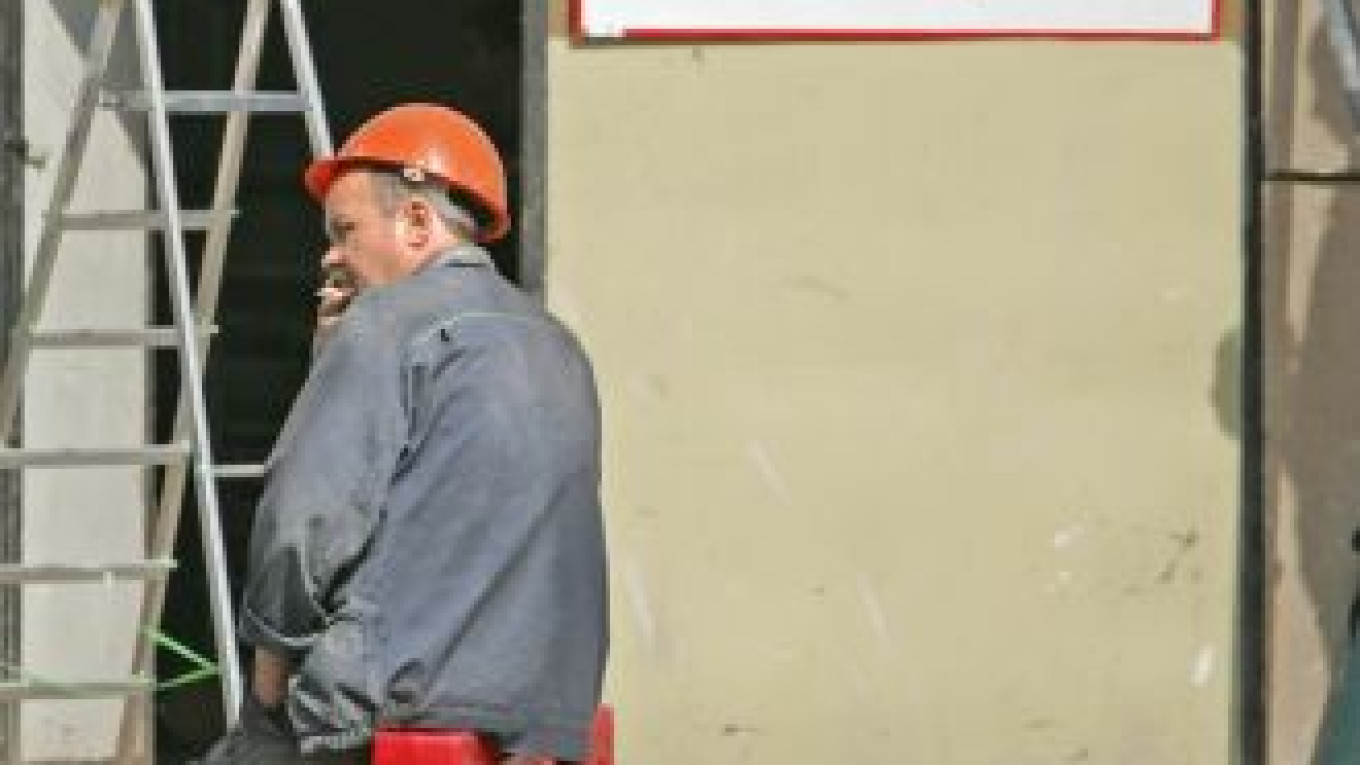The State Duma on Tuesday overwhelmingly passed a wide-ranging anti-smoking bill that would ban lighting up in almost all public places and practically eliminate tobacco advertisements.
The bill, which still needs approval by the Federation Council and the president, would forbid smoking in state institutions, universities, schools and hospitals, as well as in elevators and stairwells and near metro stations beginning June 1. Smoking is already prohibited in the metro.
A year after that, the ban would be extended to include bars, restaurants, hotels and long-distance trains, as well as municipal and suburban transportation.
Shop owners would be barred from displaying cigarette packs in store windows, and tobacco companies from sponsoring festivals or doing anything else to advertise or “stimulate” sales.
With cigarettes cheap and smoking permitted nearly everywhere, Russia is currently a smokers’ haven compared with many developed countries. About 30 percent of the population — or 44 million people — are considered smokers.
But health officials say the habit is having a nasty effect on the public’s well-being. Up to 400,000 Russians die of tobacco-related diseases each year, Luigi Migliorini, the World Health Organization’s special representative in Russia, said in a written statement to The Moscow Times last month.
On Tuesday, public health advocates’ enthusiasm for the measures was outdone only by lawmakers’, 441 of whom voted for the bill, compared with only one “nay” vote.
The bill would ban smoking in government buildings, such as the State Duma, but allow it in the smoker’s own car and smoking rooms in otherwise public places.
Contact the author at j.earle@imedia.ru
Related articles:
A Message from The Moscow Times:
Dear readers,
We are facing unprecedented challenges. Russia's Prosecutor General's Office has designated The Moscow Times as an "undesirable" organization, criminalizing our work and putting our staff at risk of prosecution. This follows our earlier unjust labeling as a "foreign agent."
These actions are direct attempts to silence independent journalism in Russia. The authorities claim our work "discredits the decisions of the Russian leadership." We see things differently: we strive to provide accurate, unbiased reporting on Russia.
We, the journalists of The Moscow Times, refuse to be silenced. But to continue our work, we need your help.
Your support, no matter how small, makes a world of difference. If you can, please support us monthly starting from just $2. It's quick to set up, and every contribution makes a significant impact.
By supporting The Moscow Times, you're defending open, independent journalism in the face of repression. Thank you for standing with us.
Remind me later.


